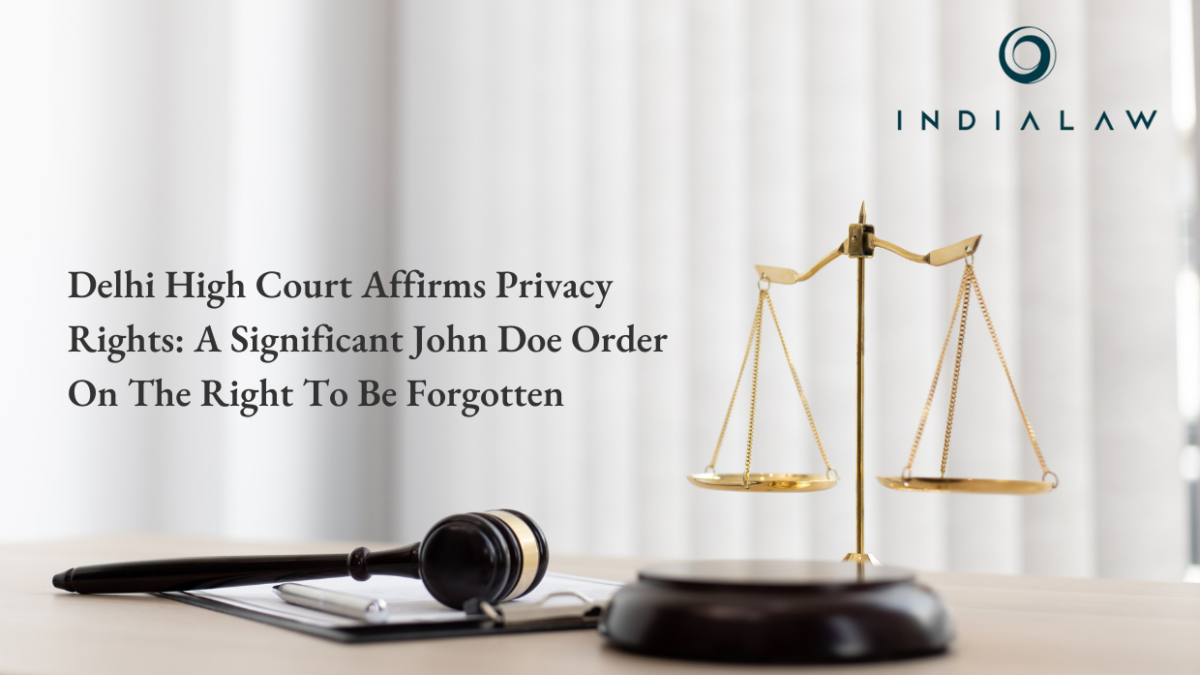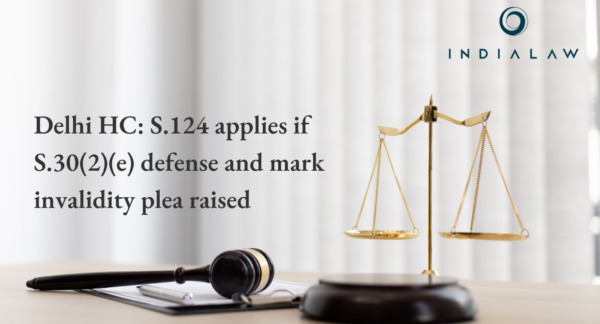Delhi High Court Affirms Privacy Rights: A Significant John Doe Order On The Right To Be Forgotten


In a recent decision, the Hon’ble Delhi High Court (“HC”) recently passed an injunction order in a matter[i], to take down the posts published by news channels on their websites and Unknown persons (“John Doe”) on social media platform ‘X’ (“Defendant No. 5”).
Table of Contents
Facts
According to the plaintiff, he had been falsely accused in a criminal matter registered in June 2018 and was acquitted from the same after a full dressed trial before the 66th Court of Ld. Metropolitan Magistrate, since he could not be proved guilty by the prosecution. When the criminal trial was going on, there were news articles published by various news channels including India Today Group (“Defendant No. 1”), INDIADOTCOM Digital Pvt. Ltd. (“Defendant No. 2”), Mid-day Info Media Ltd. (“Defendant No. 3”) and The Indian Express (“Defendant No. 4”) in their websites regarding the alleged crime and the plaintiff’s involvement in the same.
Pursuant to the acquittal, a legal notice dated 03.05.2024 was issued by the plaintiff to the media houses, post which, some removed the offending contents from their platforms. Defendant Nos. 1, 2 and 4 have updated their previous posts, but their posts were still found to be defamatory and available to the public at large. Moreover, certain posts were published by certain John Doe persons reprimanding the plaintiff, much after he was acquitted from the alleged crime. Hence the present suit.
Issue
The issues before the Hon’ble HC for determination and consideration were:
- Whether any directions are to be given to take down the defamatory posts and/or articles published in various platforms against the plaintiff in respect of criminal matter, he has already received acquittal for?
- Whether an order can be passed against the John Doe persons to take down the defamatory posts published by them?
Contentions of the Plaintiff
The Ld. Counsel for the plaintiff contended relying upon the Hon’ble Supreme Court judgement in K.S. Puttaswamy (Retd.) Vs. Union of India[ii] and Hon’ble Karnataka High Court Judgement on XXXX vs. Registrar General, High Court of Karnataka, represented by State Public Prosecutor and Others[iii],that an important aspect of the right to privacy is ‘Right to be Forgotten.’ This means that an aggrieved cannot be seen as guilty throughout his life, especially when he has been acquitted by a competent court.
Observations of the Court
The Hon’ble HC observed that the articles continued to contain defamatory and unfavourable accusations against the plaintiff, despite the modifications that have been made. Consequently, the plaintiff’s reputation has been undermined. The Hon’ble HC observed that in the case of Registrar General, High Court of Karnataka (supra), the Hon’ble Karnataka High Court noted and decided that the right to privacy consists in large part in the right to be forgotten. The Hon’ble Supreme Court determined that an individual has the right to live with dignity after being found not guilty or exonerated of charges in the case of K.S. Puttaswamy (supra).
The Hon’ble HC is prima facie of the opinion that the modifications to the news articles has damaged the reputation of the plaintiff in addition to the past news articles as it has reached the eyes of the public once more. Moreover, the posts published by the John Doe individuals have also tarnished the plaintiff’s reputation.
Conclusion
The Hon’ble HC decided the issue in favour of the plaintiff and passed an injunction order restraining Defendant nos. 1 to 4 from posting or modifying any posts in their respective websites in respect of the plaintiff and the alleged criminal matter and were also directed to take down the articles that have already been published by them. Moreover, the Defendant no. 5 was directed by the Hon’ble HC to disclose the contact information of the John Doe persons within 10 days to the Plaintiff. Upon intimation by the plaintiff to the John Doe persons, if the posts are not taken down within 48 hours, then Defendant no. 5 is directed to take down the posts within 48 hours of the plaintiff’s request to Defendant no. 5.
In the author’s opinion, this decision by the Delhi High Court is a reminder of the lasting impact of false accusations and the necessity for legal mechanisms to ensure individuals can rebuild their lives and reputations. The Court’s stance on John Doe orders also sends a clear message that anonymity online does not shield individuals from accountability. This ruling strengthens the protection of reputation and dignity in the digital world, affirming that everyone deserves a chance to move forward after being exonerated. This order, brings attention to the evolving landscape of digital rights, particularly concerning privacy and the Right to be Forgotten.
[i] X vs India Today Group & Ors., IA 33709/2024 in CS(OS) 560/2024
[ii] (2017) 10 SCC 1
[iii] 2024 SCC Online Kar 18




